New Swedish Ambassador champions progressive global values
Words MAXMILIAN WECHSLER
| HIS Excellency Staffan Herrström is one of the latest additions to the Bangkok diplomatic corps, but he is no stranger to Southeast Asia, having previously served as Sweden’s ambassador to Vietnam. He has also worked in various government offices and agencies on foreign policy issues, including development. Mr Herrström says that a driving force for his entry into public service was a perceived need to address big global issues like poverty, human rights abuses and climate change, and it’s something he stills feel very strongly about. This determination to make a difference, along with his experience and shining personality, came across clearly in a recent conversation with The BigChilli at the Swedish embassy in Bangkok. |
Background
Ambassador Herrström was born in January 1955 in Strängnäs, and grew up in Uppsala a city about 80 kilometers north of Stockholm. He holds a bachelor’s degree in Political Science with emphasis on the Russian language and East European Studies. The ambassador began a career in politics as secretary of the Swedish Liberal and Radical Youth in Uppsala in 1973 and held a number of important government posts, including State Secretary in the Prime Minister’s Office.
In 1995 Mr Herrström began a 12-year assignment with the Swedish International Development Agency (Sida), and in 2007 he went to work for the Ministry of Foreign Affairs (MFA), which immediately granted him the status of ambassador.
“Sida is a government agency working on behalf of the Swedish government, with its head office in Stockholm. Its mission is to reduce poverty in the world. In other countries this type of organization would be a part of the MFA, but in our system it is a separate agency,” Mr Herrström explained.
“It was not until 2007 when I was appointed ambassador to Tanzania that I became a diplomat in the true sense of the word, and I suppose you could say I am not a career diplomat. I didn’t approach the MFA with the goal of becoming a diplomat; I became a diplomat by way of my development background. After I left Tanzania I was appointed ambassador to Vietnam and later to Poland, which was my last position before coming here. My tenure in Thailand started on September 1, 2015 and I will be here at least three years, possibly four. In Sweden you are allowed to stay on the job until 67 years of age, so I have a few years left with the MFA and Sida.
“I visited Bangkok for the first time ten years ago on a duty trip that was much too short. I am extremely happy now to have an opportunity to get to know this great country which is so close to the hearts of many Swedes. My job and that of the embassy is to promote and protect Swedish interests in Thailand, and to strengthen relations between our countries, including between companies, organizations and individuals.
“As ambassador my main goal is that when I leave Thailand, Sweden will be even better known and appreciated among Thais, and the relationship will soar in terms of friendship and commerce. I also hope that we will be the partner of a democratic Thailand.”
Bilateral relations
“Thailand and Sweden established formal diplomatic relations in1883 and we opened our first embassy in Thailand in 1963. We have been at the present embassy in One Pacific Place on Sukhumvit Road for about 20 years. It is a good location, for one thing because it is close to the BTS, which I use often. The challenging aspect is that the embassy is divided – it’s on two separate floors, 20 and 11. So I have to work at making sure we are really cooperating as one team, and so far that’s been successful. I often find myself on the 11th floor.
“We have altogether 60 staff under the Bangkok embassy if you include our section office in Myanmar. On top of that we are happy to have an office of Business Sweden here as well, providing important services to Swedish companies. We have about 35 Thai staff at the embassy, with the rest Swedes.
“Besides Thailand and Myanmar, the embassy also looks after Laos and the Philippines. I haven’t yet been formally appointed as Swedish ambassador to any countries other than Thailand and Laos, but that’s in the process. It is important that we have a solid presence in Yangon, with five Swedish diplomats.
“A key task overall for the embassy is to promote values which the Swedish people hold dear and which are also universal values of human rights. Sweden now has a feminist government, strongly supportive of gender equality, and my impression is that there is quite an interest in Thailand in Sweden’s work in this area. This is something I would like to explore further. Openness, access to information and transparency are other issues we intend to focus on in Thailand.
“On the business front, Sweden and Swedish companies are strong on innovation, and there is a lot of interest in Thailand in innovative solutions that will enable the Thai economy to develop and grow. So this is another important area for cooperation. Finally, while in Thailand I want to emphasise sustainability and corporate social responsibility, which relate directly to the two crucial global issues of climate change and environmental protection.
“Our embassy in Thailand is the hub for Sweden’s cooperative regional development operations in Asia. The support we provide amounts to US$25 million per year, and one of its primary contributions is in strengthening and promoting environmental and human rights in Asia.
“As for bilateral trade and investment, Swedish interest in Thailand continues to be significant. Major Swedish brands are here and they should be here. There are approximately 70 Swedish companies represented in Thailand. Among them are many well-known global brands like Electrolux, Scania, H&M, Oriflame, Tetra Pak, Saab, Securitas, SKF and Volvo. Some of the companies operating here are partly owned by Swedish citizens and some are not.
“Some products are sold locally and some exported. I am confident that big multinational Swedish companies such as IKEA will continue to operate and invest in Thailand. I also hope that small and medium-size Swedish companies will see long-term opportunities in Thailand, and that Thai companies will continue to do business and invest in Sweden.”
Ambassador Herrström was born in January 1955 in Strängnäs, and grew up in Uppsala a city about 80 kilometers north of Stockholm. He holds a bachelor’s degree in Political Science with emphasis on the Russian language and East European Studies. The ambassador began a career in politics as secretary of the Swedish Liberal and Radical Youth in Uppsala in 1973 and held a number of important government posts, including State Secretary in the Prime Minister’s Office.
In 1995 Mr Herrström began a 12-year assignment with the Swedish International Development Agency (Sida), and in 2007 he went to work for the Ministry of Foreign Affairs (MFA), which immediately granted him the status of ambassador.
“Sida is a government agency working on behalf of the Swedish government, with its head office in Stockholm. Its mission is to reduce poverty in the world. In other countries this type of organization would be a part of the MFA, but in our system it is a separate agency,” Mr Herrström explained.
“It was not until 2007 when I was appointed ambassador to Tanzania that I became a diplomat in the true sense of the word, and I suppose you could say I am not a career diplomat. I didn’t approach the MFA with the goal of becoming a diplomat; I became a diplomat by way of my development background. After I left Tanzania I was appointed ambassador to Vietnam and later to Poland, which was my last position before coming here. My tenure in Thailand started on September 1, 2015 and I will be here at least three years, possibly four. In Sweden you are allowed to stay on the job until 67 years of age, so I have a few years left with the MFA and Sida.
“I visited Bangkok for the first time ten years ago on a duty trip that was much too short. I am extremely happy now to have an opportunity to get to know this great country which is so close to the hearts of many Swedes. My job and that of the embassy is to promote and protect Swedish interests in Thailand, and to strengthen relations between our countries, including between companies, organizations and individuals.
“As ambassador my main goal is that when I leave Thailand, Sweden will be even better known and appreciated among Thais, and the relationship will soar in terms of friendship and commerce. I also hope that we will be the partner of a democratic Thailand.”
Bilateral relations
“Thailand and Sweden established formal diplomatic relations in1883 and we opened our first embassy in Thailand in 1963. We have been at the present embassy in One Pacific Place on Sukhumvit Road for about 20 years. It is a good location, for one thing because it is close to the BTS, which I use often. The challenging aspect is that the embassy is divided – it’s on two separate floors, 20 and 11. So I have to work at making sure we are really cooperating as one team, and so far that’s been successful. I often find myself on the 11th floor.
“We have altogether 60 staff under the Bangkok embassy if you include our section office in Myanmar. On top of that we are happy to have an office of Business Sweden here as well, providing important services to Swedish companies. We have about 35 Thai staff at the embassy, with the rest Swedes.
“Besides Thailand and Myanmar, the embassy also looks after Laos and the Philippines. I haven’t yet been formally appointed as Swedish ambassador to any countries other than Thailand and Laos, but that’s in the process. It is important that we have a solid presence in Yangon, with five Swedish diplomats.
“A key task overall for the embassy is to promote values which the Swedish people hold dear and which are also universal values of human rights. Sweden now has a feminist government, strongly supportive of gender equality, and my impression is that there is quite an interest in Thailand in Sweden’s work in this area. This is something I would like to explore further. Openness, access to information and transparency are other issues we intend to focus on in Thailand.
“On the business front, Sweden and Swedish companies are strong on innovation, and there is a lot of interest in Thailand in innovative solutions that will enable the Thai economy to develop and grow. So this is another important area for cooperation. Finally, while in Thailand I want to emphasise sustainability and corporate social responsibility, which relate directly to the two crucial global issues of climate change and environmental protection.
“Our embassy in Thailand is the hub for Sweden’s cooperative regional development operations in Asia. The support we provide amounts to US$25 million per year, and one of its primary contributions is in strengthening and promoting environmental and human rights in Asia.
“As for bilateral trade and investment, Swedish interest in Thailand continues to be significant. Major Swedish brands are here and they should be here. There are approximately 70 Swedish companies represented in Thailand. Among them are many well-known global brands like Electrolux, Scania, H&M, Oriflame, Tetra Pak, Saab, Securitas, SKF and Volvo. Some of the companies operating here are partly owned by Swedish citizens and some are not.
“Some products are sold locally and some exported. I am confident that big multinational Swedish companies such as IKEA will continue to operate and invest in Thailand. I also hope that small and medium-size Swedish companies will see long-term opportunities in Thailand, and that Thai companies will continue to do business and invest in Sweden.”
Big Swedish presence
Mr Herrström said that on average 350,000 Swedes visit Thailand every year and there are a large number of more or less permanent residents as well. “It is difficult to say exactly how many Swedes live in Thailand but I would say it’s in the tens of thousands. Given the number of Swedes in Thailand, the embassy has an important role in providing them assistance not just in Bangkok, but also other parts of Thailand through honorary consulates in Phuket, Chiang Mai, Pattaya and Hua Hin.
“Swedish citizens face problems just like tourists from any other country, and since there are so many Swedes here there may be a lot of problems to deal with at any one time. They may be victims of accidents or theft, they may lose things, and of course a small number pass away while in Thailand. I have only been here for a few months, but as far as I can tell there are no major complaints from Swedish visitors about their Thai hosts, or vice versa. On the contrary, I think the fact that about 350,000 Swedish tourists visit here on a regular basis every year says a lot about the attraction Thailand has for Swedes and how comfortable they are here.
“A very significant number of Thais travel to Sweden as well, and many thousands of Thais have settled in Sweden. This makes immigration services another central activity for the embassy. The number of visa applications from Thai citizens continues to rise and this makes us very happy. During the first three quarters of this year the embassy received 10,000 applications. This is a record number. Both tourist and business visas are increasing, and it must be remembered that many Thais who visit Sweden obtain their visas from another Schengen country such as Denmark.”
Sweden and the EU
“Sweden is a parliamentary democracy with almost ten million inhabitants, 16 percent of whom were born in another country. The head of state is King Carl Gustaf, but he exercises no political power. Since last year the country has been governed by a coalition of Social Democrats and Greens. We have a long history of freedom of the press, starting in the late 18th century, and the right to information through public access of official documents is a key element in our democracy. This feature significantly facilitates the scrutiny of the decision makers and public servants. Sweden has enjoyed peace for over 200 years and is strongly engaged in promoting peace, security, human rights and development. Our aid budget amounts to one percent of the GDP.
“Sweden is one of the largest countries in Europe, comparable in size to Thailand. It is characterized by its long coastline on the Baltic and North seas, extensive forests and numerous lakes. Swedes are becoming more and more conscious of their environmental responsibilities, and over 50 percent of our energy now comes from renewables. Only about one percent of Sweden’s waste goes to a rubbish dump. Our economy is to a large extent based on innovative enterprises and free trade. Sweden is now number three in the Global Innovation Index.
“Another important characteristic of our society is that social services are available equally to all citizens, financed through taxes. Obviously such a general welfare state is dependent on the broad-based participation of both men and women in the labor sector. Gender equality, although still not fully achieved, has significantly improved in recent decades. The employment rate for women has increased, and this has been greatly facilitated by the high quality and affordable day care now available for all children.
“Sweden has benefited tremendously politically and economically since joining the European Community in 1995, and the benefits are clearly evident for individuals. The creation of a single market with over a half billion inhabitants has been an enormous boost to the economy of Sweden and other countries as well. Sweden is a small country and we are heavily dependent on exports. The wealth of our nation has to a large extent been created through our ability to compete in the world market. The more the world market opens up the better for everyone, and not least for a small country. Now, instead of a market of ten million people our producers have a market of 500 million, which is a major change.
“Second, we benefit politically because we have a bigger voice in the global arena through the EU. This is a voice that promotes not only the interests of the continent and the EU’s 28 member states, but also the values that drive the EU. These values can in many ways be traced back to our shared experiences of the devastating wars of the last century. The EU promotes peace and democracy all over the world, and certainly on the European continent, where democracy is now firmly entrenched. As a former ambassador to Poland, I perhaps have a special interest in that country’s history. Poland had a long legacy of being tormented by dictatorship and oppression and even being wiped off the map of Europe. After the fall of the Soviet Union in 1989 and its eventual membership in the EU, Poland has seen a renewal of democracy and freedom and the economy has grown tremendously.
“Finally, on an individual level, whether Poles or Swedes, Croatians or Brits, we all have the opportunity to study and work where we wish on the European continent and to widen our horizons. We are all part of the European family; we can learn from each other and we benefit from learning from each other. That also means we become more capable as human beings. Thanks to the beneficial impacts of the EU in these three dimensions, Europe has successfully managed to wipe out the horrors that have tormented the continent for centuries in only a generation.”
| On the personal side “I am married to Karin Herrström, a teacher in biology, who is here with me and loves it here,” said Mr Herrström. “She works very closely with me in promoting Sweden in Thailand. We have two daughters, 20 and 24 years old. Both are studying at Stockholm University. “I find Bangkok a very friendly place where it is easy to rapidly feel at home as a foreigner, and I don’t say that to win points with your readers. That’s my honest impression. The four countries I have been ambassador to are so different from each other, as are their capitals, that it is difficult to compare them in an honest way. I can truly say I love them all, but for different reasons. |
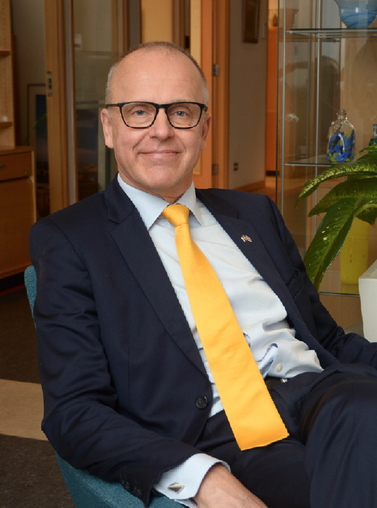
“The major challenge in Bangkok – and this is not unique to Bangkok – is the traffic jams. I am encouraged to see that the city has been able to put the BTS and the MRT systems in place and I look forward to their expansion. This is necessary not only to ease traffic but also to reduce greenhouse gases.
“I intend to travel outside Bangkok whenever time allows. You can never get to know a country in depth if you only stay in the capital. My first trip was to Hua Hin in November.”
Mr Herrström is also already making an effort to learn the language. “Together with my two Swedish colleagues, my deputy and the head of the political section, I am taking three Thai language lessons a week, starting at the beginning,” he said. “We all feel that it is a nice experience. It is challenging but we are enjoying ourselves.”
Besides fluency in his native tongue and English, he is proficient in Polish, understands Russian since his university studies and has a basic knowledge of German and French. He has also briefly studied some Kiswahili and Vietnamese but he says very little is left.
“Since coming to Thailand, I have started to eat more fruit, especially in the morning, than ever before in my life. I eat a lot of pomelo, passion fruit, banana and papaya. It’s a little thing but it’s a major advantage of living in Bangkok. In general, I prefer combining many different styles of cuisine. I am very fond of Italian food. Obviously I am proud that Swedish cuisine has improved to the extent that our chefs are winning gold medals in international competitions like the Culinary Olympics.
“It has been fascinating for me to see how perceptions of Swedish food have changed in my lifetime. It was regarded as being rather dull when I was a kid in the 1960s, and now it is on the leading edge of global cooking. I am very fond of Swedish food and I think that we can promote it with pride in other countries, including Thailand. Of course, I understand why so many Swedes like to eat Thai food here and at home. I am also a big fan.”
Mr Herrström is an avid runner, although he isn’t finding as much time as he’d like to lace up his shoes. “It would be great to do at least a half marathon before I leave, and in the best of worlds I may even get in a whole marathon as I did in Warsaw this past April. Besides running, I spend a lot of my free time reading and listening to music.”
“I intend to travel outside Bangkok whenever time allows. You can never get to know a country in depth if you only stay in the capital. My first trip was to Hua Hin in November.”
Mr Herrström is also already making an effort to learn the language. “Together with my two Swedish colleagues, my deputy and the head of the political section, I am taking three Thai language lessons a week, starting at the beginning,” he said. “We all feel that it is a nice experience. It is challenging but we are enjoying ourselves.”
Besides fluency in his native tongue and English, he is proficient in Polish, understands Russian since his university studies and has a basic knowledge of German and French. He has also briefly studied some Kiswahili and Vietnamese but he says very little is left.
“Since coming to Thailand, I have started to eat more fruit, especially in the morning, than ever before in my life. I eat a lot of pomelo, passion fruit, banana and papaya. It’s a little thing but it’s a major advantage of living in Bangkok. In general, I prefer combining many different styles of cuisine. I am very fond of Italian food. Obviously I am proud that Swedish cuisine has improved to the extent that our chefs are winning gold medals in international competitions like the Culinary Olympics.
“It has been fascinating for me to see how perceptions of Swedish food have changed in my lifetime. It was regarded as being rather dull when I was a kid in the 1960s, and now it is on the leading edge of global cooking. I am very fond of Swedish food and I think that we can promote it with pride in other countries, including Thailand. Of course, I understand why so many Swedes like to eat Thai food here and at home. I am also a big fan.”
Mr Herrström is an avid runner, although he isn’t finding as much time as he’d like to lace up his shoes. “It would be great to do at least a half marathon before I leave, and in the best of worlds I may even get in a whole marathon as I did in Warsaw this past April. Besides running, I spend a lot of my free time reading and listening to music.”
CV Of H.E. Staffan Herrström
Education
1980: Bachelor of Arts (Russian, Eastern European Studies, Political Science - University of Uppsala)
1973: High school (Katedralskolan, Uppsala)
Positions
2011 – 2015: Ambassador of Sweden to Poland
2010 – 2011: Ambassador of Sweden to Vietnam
2007 – 2010: Ambassador of Sweden to Tanzania
2004 – 2007: Director, Department for Policy and Methodology (including responsibility for multilateral coordination from Autumn 2005), Deputy Director General, Swedish International Development Cooperation Agency (Sida)
2003: Acting Director General Sida
1995 – 2004: Director, Department for Europe, Deputy Director General of Sida
1991 – 1994: State Secretary, Prime Minister’s office (in charge of coordinating the Liberal Party under Deputy Prime Minister Bengt Westerberg)
1986 – 1991: Head of Office, Parliament Group for the Liberal Party
1983 – 1986: Journalist, Göteborgs-Posten (editorials)
1981 – 1982: Political adviser to Deputy Prime Minister Ola Ullsten
1976 – 1978: Secretary General, Swedish Liberal and Radical Youth
1973 – 1975: Secretary, Swedish Liberal and Radical Youth, Uppsala
Commissions in Sweden (some examples)
1991 – 1995: Member of the Board of Sida
1981 – 1983: Local councilor, Uppsala municipality
1979 – 1981: Deputy local councilor, Uppsala municipality
Education
1980: Bachelor of Arts (Russian, Eastern European Studies, Political Science - University of Uppsala)
1973: High school (Katedralskolan, Uppsala)
Positions
2011 – 2015: Ambassador of Sweden to Poland
2010 – 2011: Ambassador of Sweden to Vietnam
2007 – 2010: Ambassador of Sweden to Tanzania
2004 – 2007: Director, Department for Policy and Methodology (including responsibility for multilateral coordination from Autumn 2005), Deputy Director General, Swedish International Development Cooperation Agency (Sida)
2003: Acting Director General Sida
1995 – 2004: Director, Department for Europe, Deputy Director General of Sida
1991 – 1994: State Secretary, Prime Minister’s office (in charge of coordinating the Liberal Party under Deputy Prime Minister Bengt Westerberg)
1986 – 1991: Head of Office, Parliament Group for the Liberal Party
1983 – 1986: Journalist, Göteborgs-Posten (editorials)
1981 – 1982: Political adviser to Deputy Prime Minister Ola Ullsten
1976 – 1978: Secretary General, Swedish Liberal and Radical Youth
1973 – 1975: Secretary, Swedish Liberal and Radical Youth, Uppsala
Commissions in Sweden (some examples)
1991 – 1995: Member of the Board of Sida
1981 – 1983: Local councilor, Uppsala municipality
1979 – 1981: Deputy local councilor, Uppsala municipality

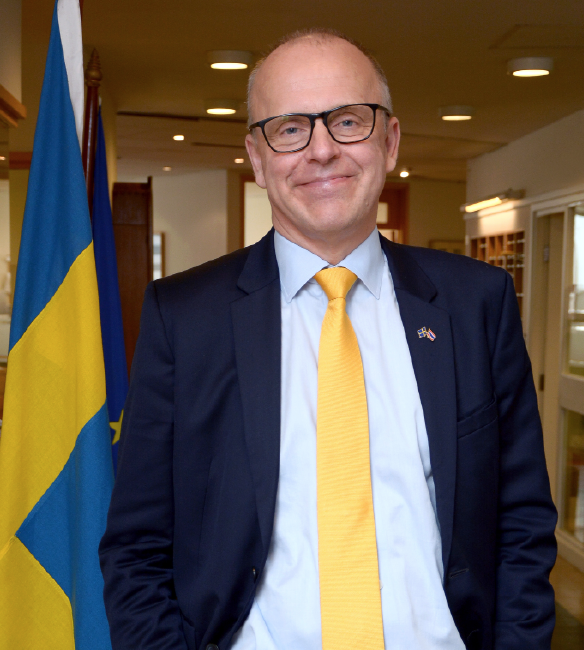
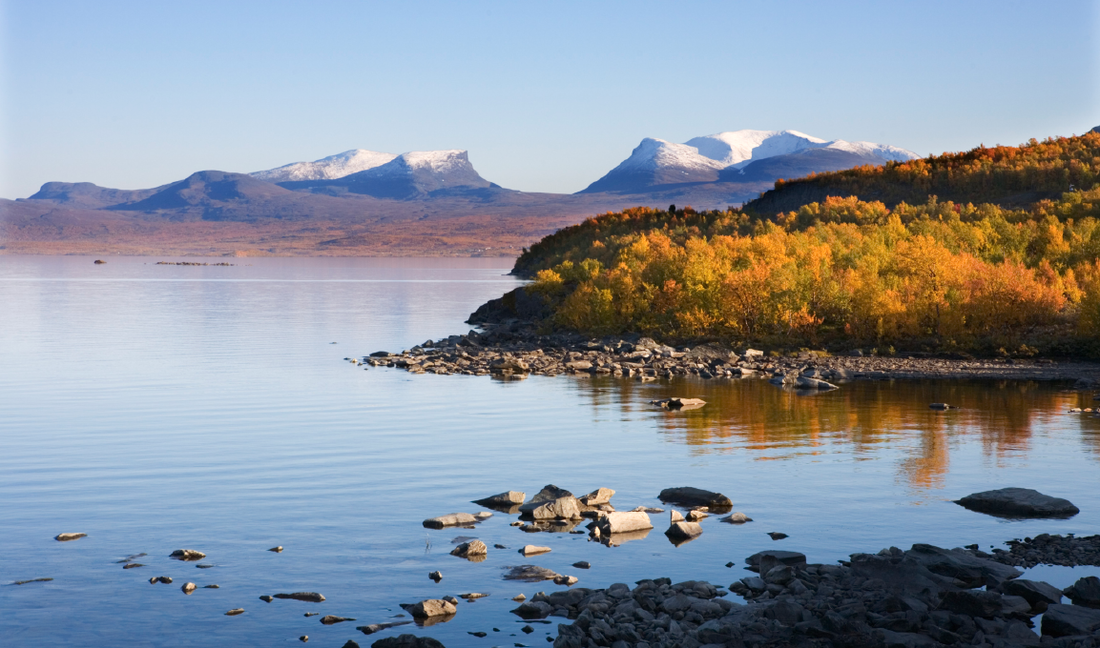
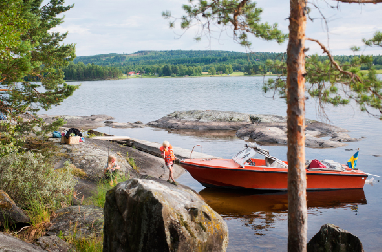
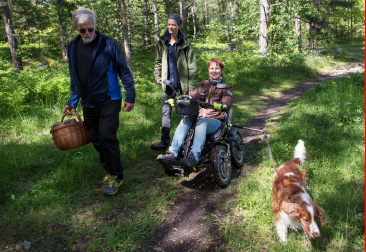

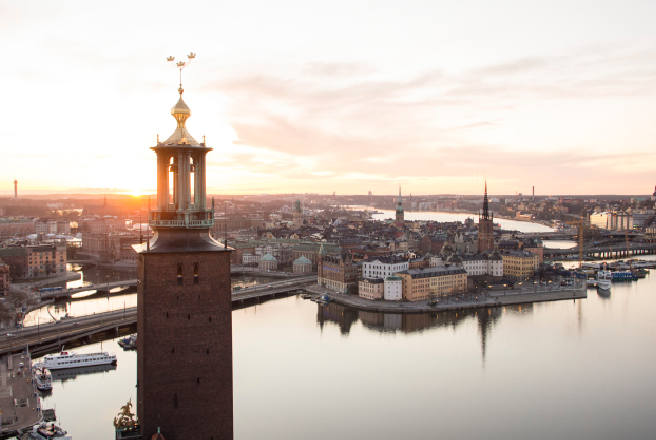

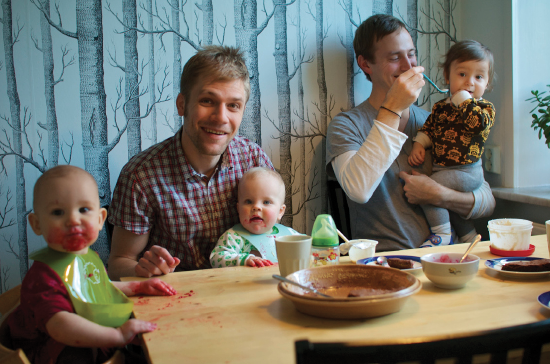
 RSS Feed
RSS Feed
















